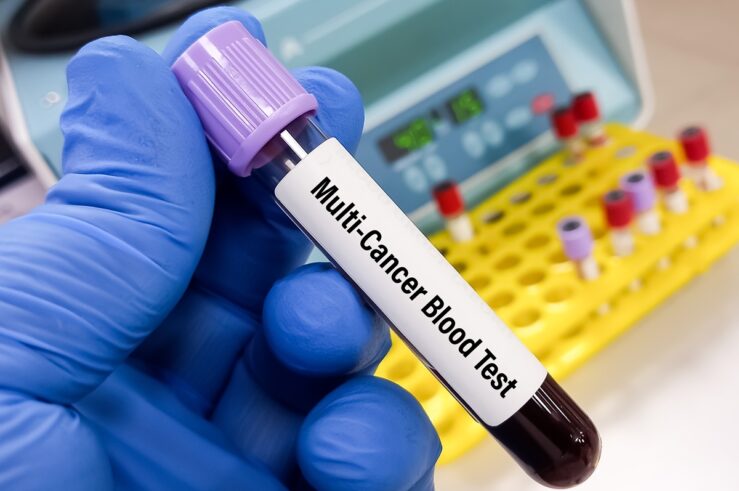Showing archive for: “Pharmaceutical Industry”
Reports of the Current FTC’s Intellectual Integrity Have Been Greatly Exaggerated
The Federal Trade Commission (FTC) has released its long-awaited report on pharmacy benefit managers (PBMs) as an “interim staff report.” And it’s yet another staff report that doesn’t name the relevant staff. On the one hand, it does contain some useful information on industry developments. On the other, it’s just not very good—at all. With ... Reports of the Current FTC’s Intellectual Integrity Have Been Greatly Exaggerated
The View from the United Kingdom: A TOTM Q&A with John Fingleton
What is the UK doing in the field of digital-market regulation, and what do you think it is achieving? There are probably four areas to consider. The first is that the UK’s jurisdiction on mergers increased with Brexit. The UK is not subject to the same turnover threshold as under European law, and this enables ... The View from the United Kingdom: A TOTM Q&A with John Fingleton
The FTC Office of Patent Invalidation
The Federal Trade Commission (FTC) announced late last month that it had “expanded its campaign against pharmaceutical manufacturers’ improper or inaccurate listing of patents in the Food and Drug Administration’s (FDA) Orange Book, disputing junk patent listings for diabetes, weight loss, asthma, and COPD drugs, including Novo Nordisk Inc.’s blockbuster weight-loss drug, Ozempic.” Warning letters ... The FTC Office of Patent Invalidation
Chris DeMuth Jr: Perspectives on Antitrust from Financial Markets and Venture Capital
How much do you take potential antitrust concerns into account when evaluating investments or mergers and acquisitions? Has this changed over time? Antitrust is a big part of M&A and the work I do in analyzing deals at Rangeley Capital. It has always been important, but the importance has grown with this administration’s activist approach. ... Chris DeMuth Jr: Perspectives on Antitrust from Financial Markets and Venture Capital
March-Right-on-In Rights?
The National Institute for Standards and Technology (NIST) published a request for information (RFI) in December 2023 on its “Draft Interagency Guidance Framework for Considering the Exercise of March-In Rights.” It’s quite something, if not in a good way. March-In Rights Provide Very Limited Exceptions to Intellectual-Property Rights What are “march-in” rights? In brief, they ... March-Right-on-In Rights?
The FTC’s Misguided Campaign to Expand Bayh-Dole ‘March-In’ Rights
The Federal Trade Commission (FTC) has now gone on record in comments to the National Institute of Standards and Technology (NIST) that it supports expanded “march-in rights” under the Bayh-Dole Act (Act). But if NIST takes the FTC’s (unexpected, but ultimately unsurprising) contribution seriously, such an expansion could lead to overregulation that would ultimately hurt ... The FTC’s Misguided Campaign to Expand Bayh-Dole ‘March-In’ Rights
FTC v. Illumina/Grail – A Rare FTC Merger Victory? (Actually, a Loss for Consumers)
Although it was overshadowed by the Federal Trade Commission (FTC) and U.S. Justice Department’s (DOJ) year-end release of the 2023 merger guidelines, one should also note the abrupt end of the FTC v. Illumina/Grail saga. The saga finished with the FTC’s Dec. 18 press release announcing that Illumina decided on Dec.17 to divest itself of ... FTC v. Illumina/Grail – A Rare FTC Merger Victory? (Actually, a Loss for Consumers)
Three Problems with Accelerated Access: Will They Be Overcome?
This post discusses three important problems with the Food and Drug Administration’s (FDA) accelerated-approval process. The first is that regulatory authorities and patient groups maintain that, legally, the standards of accelerated approval are the same as standard approval. Yet from a risk perspective, the standards are quite different; by shifting risk taking from regulator to ... Three Problems with Accelerated Access: Will They Be Overcome?
Oncology Drives Most Recent Accelerated Approvals
In my most recent post on medicine approvals I explored how the HIV/AIDS crisis drove a reevaluation of what was truly essential to demonstrate a new drug’s efficacy. Allowing HIV patients to take investigational treatments meant that research into rarer conditions—which previously would never have been profitable—might now be financially worthwhile. This post estimates the ... Oncology Drives Most Recent Accelerated Approvals
A Brief History of the US Drug Approval Process, and the Birth of Accelerated Approval
This is the second post about the U.S. drug-approval process; the first post is here. It will explore how the Food and Drug Administration (FDA) arose, how disasters drove its expansion and regulatory oversight, and how the epidemic of the human immunodeficiency virus (HIV) changed the approval processes. The Arrival of New Medicines Lone inventors, ... A Brief History of the US Drug Approval Process, and the Birth of Accelerated Approval
Abby Normal, a Flood of Ill-Considered Withdrawals, and the FTC’s Theatre of Listening
What will become of our culture if we forget the classics? Two bits seem salient here, would that either were my own. Dr. Frankenstein: Now, that brain you gave me. Was it Hans Delbruck’s? Igor: … [pause] … No. Dr. Frankenstein: Ah! Very good. Would you mind telling me whose brain I did put in? ... Abby Normal, a Flood of Ill-Considered Withdrawals, and the FTC’s Theatre of Listening
Antitrust at the Agencies Roundup: Take My Default … Please! Edition
I can hardly believe it, but I’ve read that a famous old bit by Henny Youngman has been purged from Florida textbooks, apparently because it was deemed offensive to those who wrote, told, and laughed at the joke. I won’t tell it here, but you can look it up. And if you’re a reader of ... Antitrust at the Agencies Roundup: Take My Default … Please! Edition
















